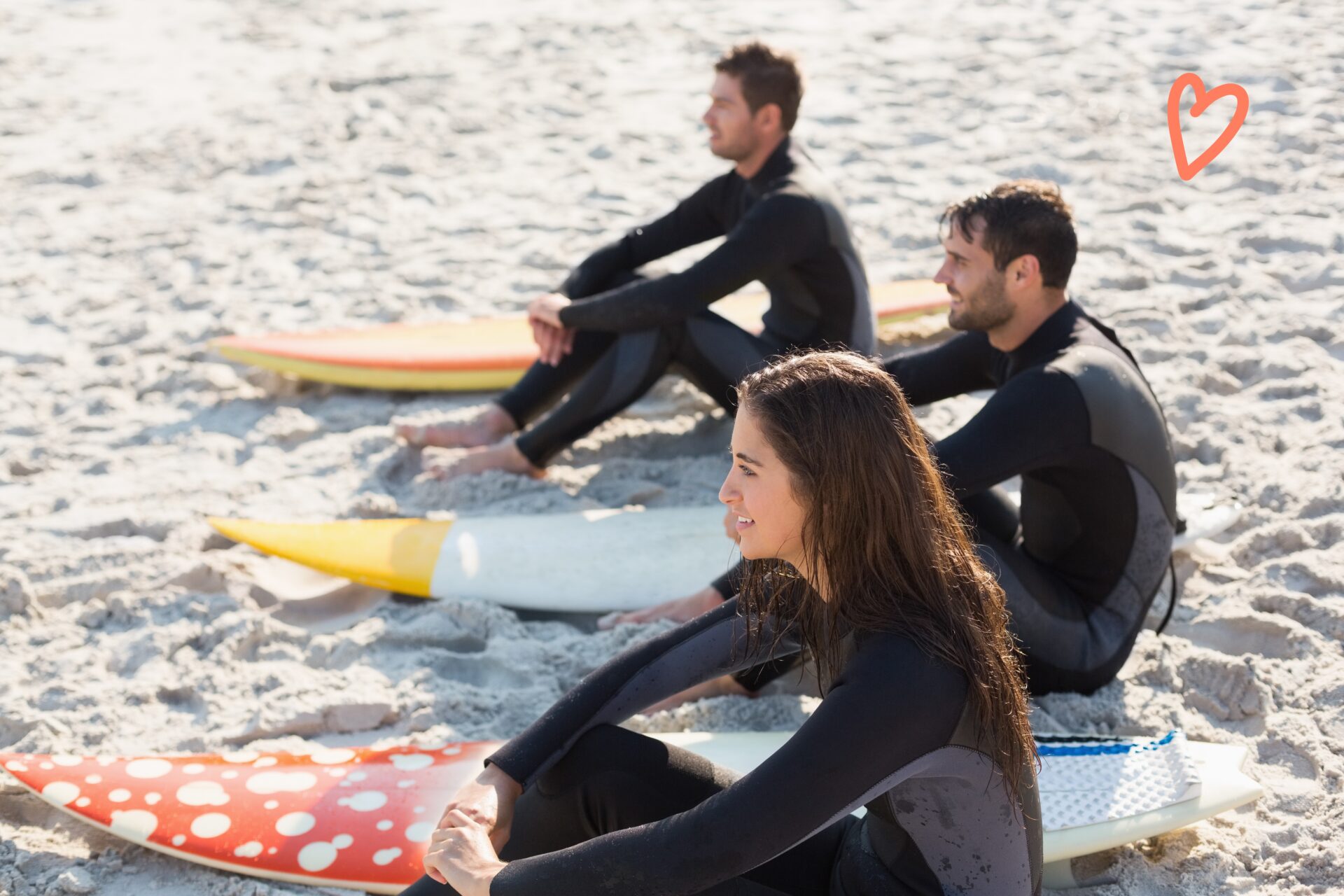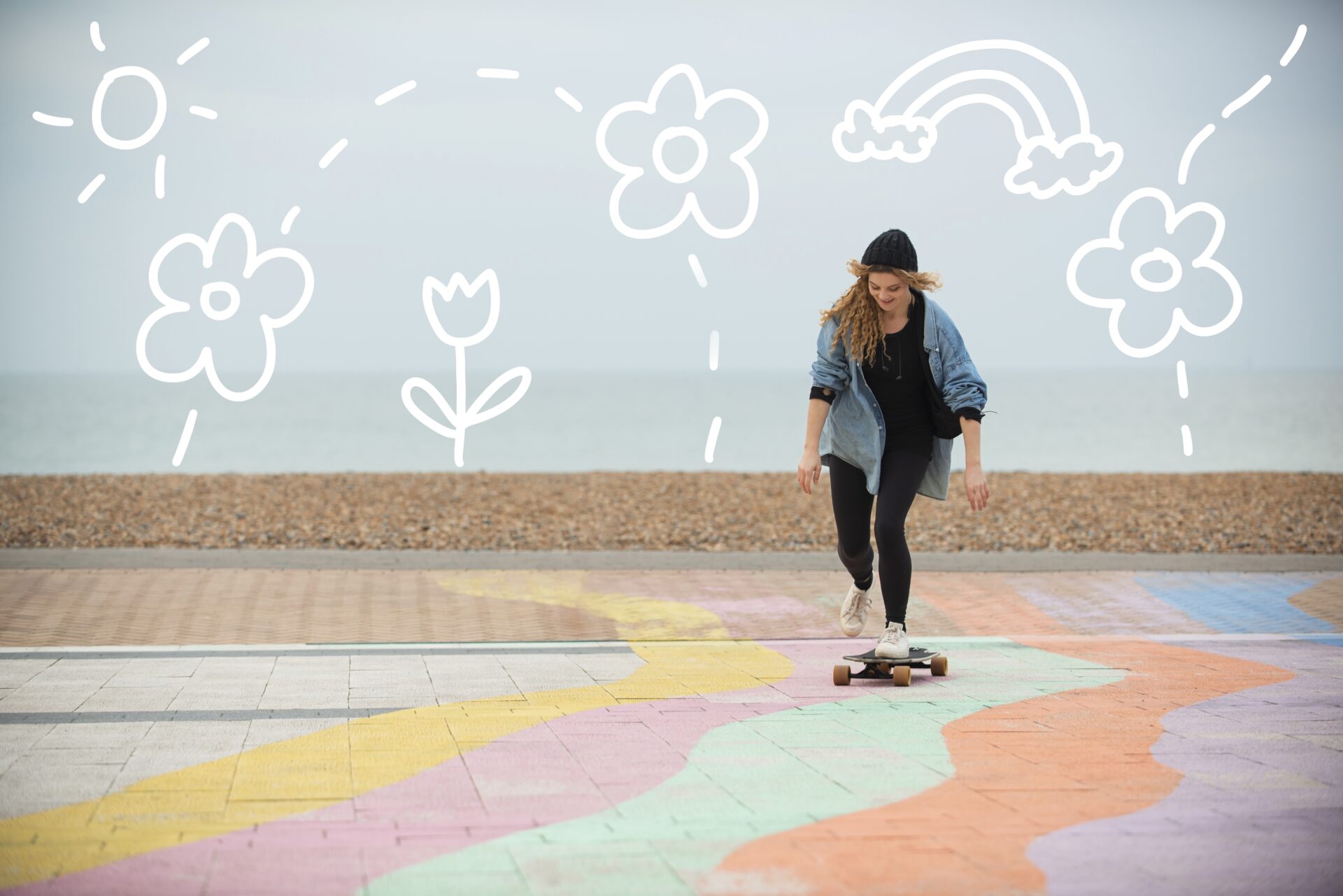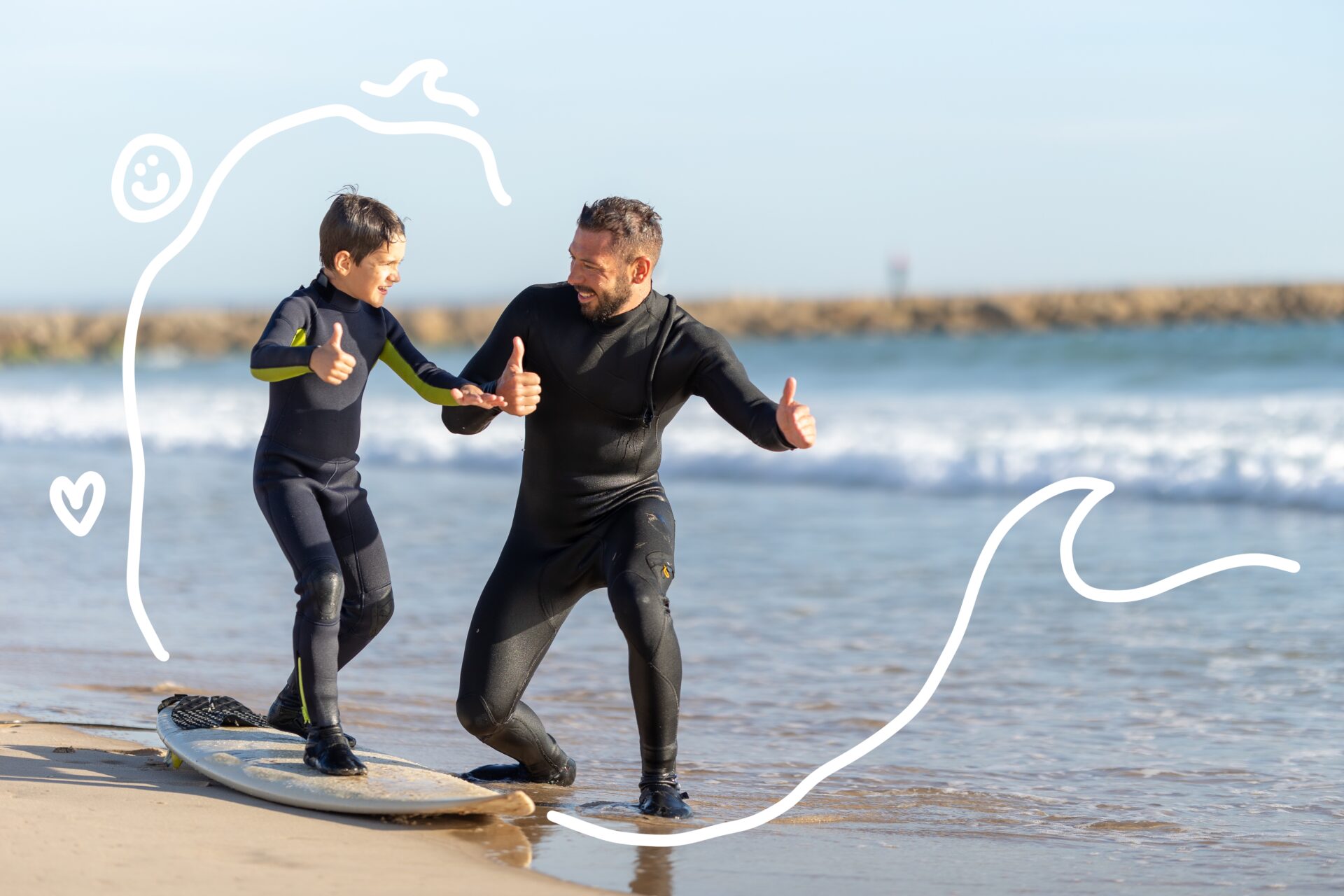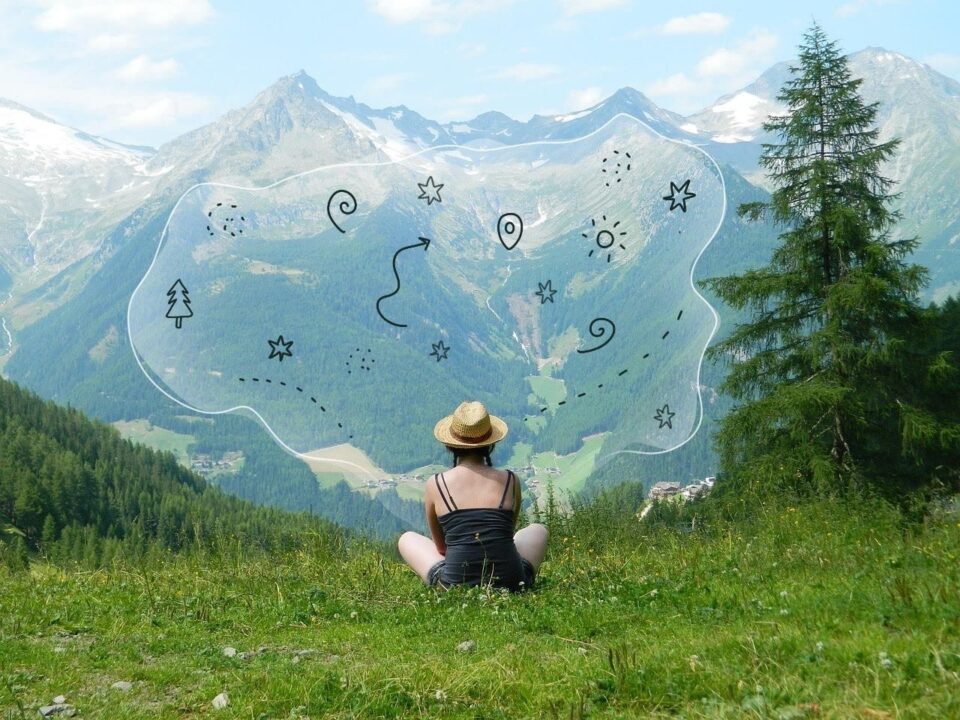Mental health care takes many forms. Movement plays an important role in it. For example, surfing is not only a sport and a means to develop physical fitness, but also mental resilience. It can act as a prevention of burnout. Adam Žáček and Tereza Podávková wanted to offer these benefits to people in the Czech Republic. As part of their project Flow Therapy come up with a surf therapy-inspired concept that uses surfskate.
Surfing has both physical and mental benefits. It strengthens muscles, balance and self-confidence. It helps reduce stress, overcome fear and distract from negative thoughts. It is beneficial for people suffering from anxiety, depression, post-traumatic stress disorder or those facing burnout syndrome. It also disconnects from screens, connects with nature and creates a community and support that many lack in their everyday lives. It was surfing that brought surfers together Adam Žáček, ISA 2 instructor license holder and surfskate trainer, with a psychologist Tereza Podávková.
Surf therapy
They met in Sri Lanka on a surfing trip. Terka needed to clear her head and improve her skills on the board, Adam was there as a teacher. "When I get sick, I go to Surf-Trip. I'll get myself together there," he says during the interview. And I just nod in agreement - I flew there with the same intention: to recover from burnout, to get my thoughts straight and, of course, to surf.
Adam confirms that during his stays he met many people who mentioned burnout or related conditions.
"I was intrigued by his experience with surf therapy, which he got involved in as a volunteer with a non-profit organization The Wave Project. At first I wrote my thesis about it, but gradually it made more and more sense to me. Adam and I started thinking about how to bring surf therapy here - without the ocean. Adam came up with the idea of using surfskate. That's how Flow Therapy was born," says Theresa.
Adam adds: "I heard about The Wave Project in 2015 and signed up for volunteer training. I didn't know what to expect. It was a therapy for children with different types of physical and mental disabilities - autism, complete paralysis, anxiety, ADHD, or children from troubled backgrounds. After the first week, I was completely engrossed. I started coming to Newquay, the mecca of British surfing, where the organisation operates, on a regular basis. Gradually I became one of the programme leaders. The results were incredible - the kids were literally transformed in two weeks. For me personally it was therapy too - the kids' joy, the positive environment, sucking their energy back in."

From pressure to perform to self-acceptance and flow
Surf therapy supports psychosocial and cognitive development. It improves physical fitness and mental health - including alleviating symptoms of post-traumatic stress or depression. Whether we're riding waves or just sitting on a board and taking in the sound of the ocean, we come into the present - often into a state of flow. The euphoria after a ride can be explained by the release of neurotransmitters such as endorphins, dopamine, serotonin, as well as adrenaline and noradrenaline. The combination of these substances causes us to return to the board repeatedly.
Sure, surfing can also bring frustration and exhaustion. Sometimes it's hard to put down the desire to perform. This is where surfing or surfskate offers a space to work with the mind. It teaches us to accept that we are not perfect and that progress comes slowly, through the downs. It teaches us to step out of our comfort zone - and that's one of the adaptive strategies for coping with stress.
"Thanks to surf therapy, I have a different approach to surfing and surfing. It's not just about performance, it's about enjoying yourself and the present moment. It's normal that sometimes you don't catch a single wave - it's not a failure. For me personally, surfing and surfskate have been a big help during a harder time," says Adam.
Movement, safe environment and community
Project Flow Therapy was created in 2025 and is currently in pilot version. It is based on the pillars of movement, nature, community and building self-esteem. Surfskate is not about performance here, but about fun, safety and mutual support. The goal is for people to slow down, overcome fear and experience a state of flow.
"A large number of children today are overweight or obese due to lack of natural exercise. Surfskate engages the whole body and is a natural, fun movement. It's also about self-acceptance, community and support, which many lack. The goal is to prevent burnout," says Theresa. She also adds that Flow Therapy is not a substitute for psychotherapybut a complement and a supporting tool.
The team includes a therapist ready to intervene in crisis situations. "We will pre-select the participants so that we know what they come with and can approach them sensitively. Even the team of volunteers and coaches must work as a unit - so that we don't get overloaded, and at the same time we know who works with people and how," explains Tereza.

Therapy available to all
Flow Therapy primarily targets children and adolescents. "The situation in the Czech Republic is difficult, there are few specialists and children's mental health is in crisis. But we know that our activities also help adults. We are also planning purely female groups where women can open up more," Adam adds. There are mainly group sessions, but there will also be opportunities for individual access.
Lessons last 1.5 hours and are held once a week. More often in the future. There is no shortage of interest. "We tested it in a children's home and the day care centre where I work. The reactions have been great - from the children and the staff," says Tereza.
"We want to be available to everyone who needs us. We don't want to stay only in Prague. We are considering donations or sponsorships so that we can offer lessons for a nominal fee. We want the project to remain a therapy, not a business. And to be accessible to people with disabilities," Adam emphasizes. "There's no limit to surfskate therapy - we've had clients with visual impairments and complete paralysis. It's always worked out somehow. We also take inspiration from abroad. In Spain, a similar project has started from surfskat and is moving towards surfskate. We want to keep barriers to a minimum - including financial ones."
A website with more information and login options is currently being developed. In the meantime, the project can be contacted via Instagram or e-mail (Flowtherapy.cz@gmail.com). Now they need to find a facility so that they are not limited by bad weather or cold, they are open to cooperation with other organizations or participation in various events where interested people could try the benefits of Flow Therapy.
"I would also like to follow up on my thesis and do more research on the project. In the field of psychology, what is not supported by research does not work. In the future, it will be good for us to reach out to psychology students, for example, or to get into scientific conferences. International Surf Therapy Organization (ISTO) organizes a conference once a year, which we would like to get to," adds Tereza Podávková about the plans.




